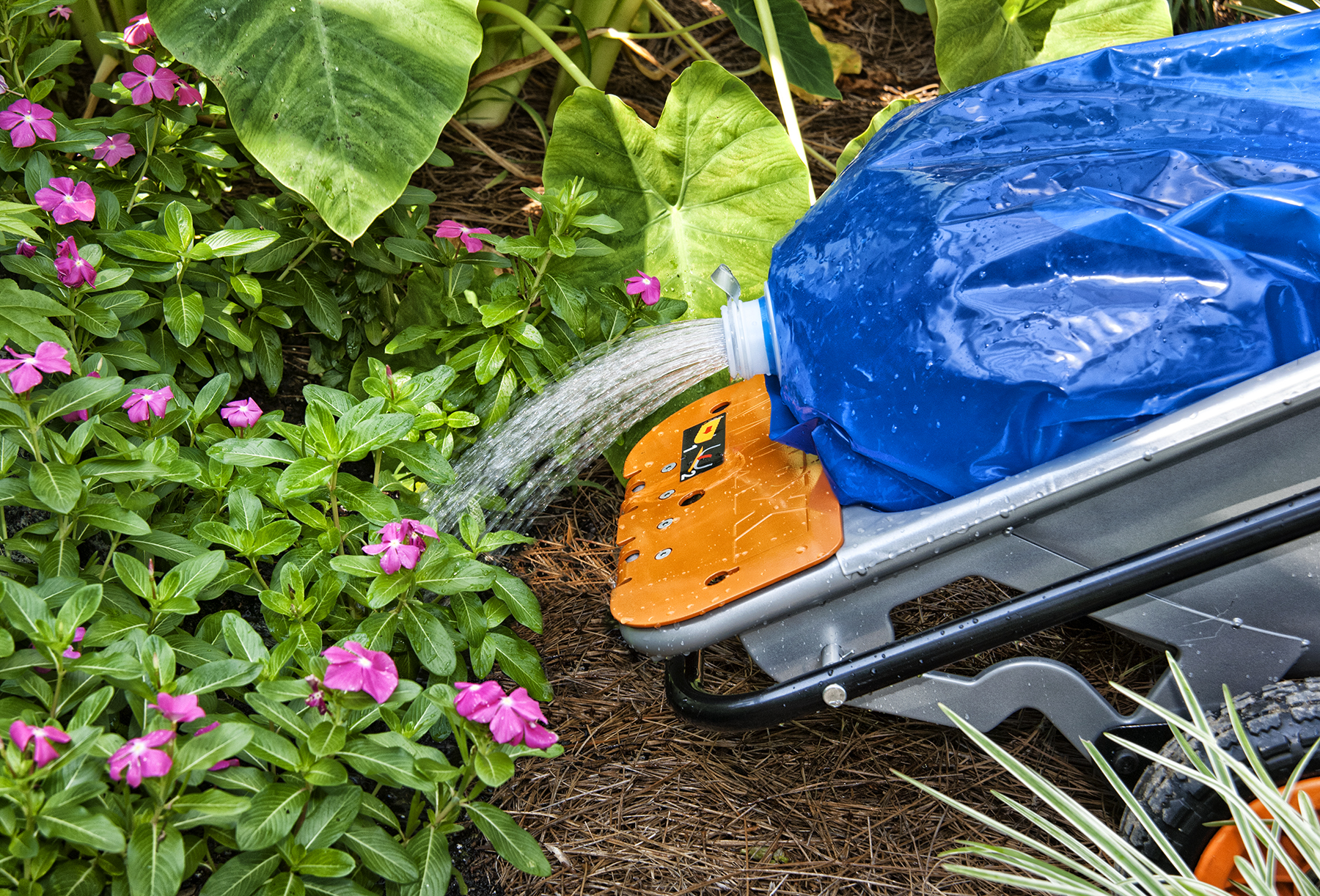7 Steps to a Beautiful Water-wise Landscape
Looking for ways to save water (and time!) in the landscape? With a little planning and a few simple practices, you can save money on your water bill and still maintain a beautiful garden. Here are seven ways easy steps to get you started.
Build a Better Soil
Soil is probably not the first think you think of when it comes to saving water in the landscape, but it is a good place to start. Improve soil quality by adding at least an inch of organic matter each season from sources such as compost, decomposed leaves, or composted manure. Organic matter helps increase the water holding capacity of sandy soils and reduces run-off from clay soils. In both cases, more water enters and stays within the soil profile, reducing how frequently you need to irrigate garden beds. As a bonus, compost also improves soil nutrition.
Select Appropriate Plants
As much as possible, select plants well adapted to your local climate. The less plants depend on you for water, the more likely they are to thrive in the garden. You will also save time and money by not needing to irrigate as often. If you live in a hot, dry climate look for drought tolerant perennials and shrubs. Locally-native plants are always a good choice in any climate. Be sure to place plants according to sun requirements and water needs, grouping plants with similar needs together.
Select Turf Wisely
Not all lawns are created equal. Some turf grasses require large amounts of water to remain lush and green in summer, particularly in hot climates. Depending on where you live, a warm-season grass such as buffalo, bermuda, or zoysia grasses are good water-wise selections. Among cool season grasses, tall fescue and Kentucky bluegrass are among the thirstiest of grasses. While there are many factors affecting turf selection, water use is an important consideration.
Mulch for Moisture
Not only does a mulched garden look tidier and more attractive, mulch is one of the most powerful water-saving tools in the garden. Applying a 4- to 6-inch layer of mulch over exposed soils helps to retain soil moisture by reducing evaporation from sunshine and desiccating winds.
Organic mulches are ideal for water-wise gardening. These include wood chips, bark, grass clippings, leaves, and other plant debris. Not only do they retain soil moisture, they also decompose over time, adding organic matter to the soil and improving soil conditions.
Maintenance Matters
Heathy plants use less water, so basic plant care is important. Managing weeds, thinning overcrowded plants, and proper pruning keep garden plants in top shape. In the lawn, proper fertilizing and mowing practices reduce water requirements and weed competition.
Irrigate Effectively
Proper irrigation goes a long way toward reducing overall water use in the landscape. A lot of irrigation water is lost in the wind or drained away down driveways and street. Aiming water at the root zone of plants through drip irrigation, soaker hoses, or hand watering significantly reduces the amount lost when irrigating. Watering deeply, but less often also helps cut water use.
Don’t Let Rainwater Escape
Why not take advantage of all that free water falling on your yard during a rainstorm? There are many ways to reap extra benefits from rainfall. Collection and storage in rain barrels allows you to capture rainwater for use during drier weather. Another option is to keep rainwater from leaving the landscape. Direct downspouts into garden beds rather than letting water flow down driveways and sidewalks. This not only protects our rivers and streams, but adds more water to the soil profile.
Find tools to help you water your landscape by clicking HERE.

